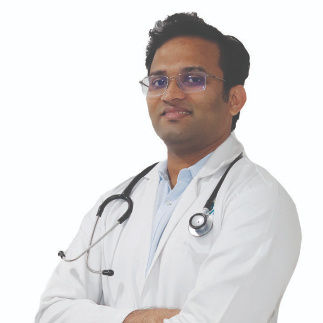Understanding Piles, Fissures, and Fistulas: Key Differences and Treatments
Understand the distinctions between piles, fissures, and fistulas with this easy-to-read guide on their symptoms and treatments.

Written by
Last updated on 3rd Jul, 2025
Piles (haemorrhoids), fissures, and fistulas are common anatomical health conditions that people face. These issues can cause severe discomfort, pain, and even bleeding at times. While they have overlapping symptoms, their underlying reasons and treatment methods are different. Therefore, to manage and treat them effectively, one first needs to know the differences. It will help the patients get timely medical intervention and more favourable health outcomes.
What Is Piles?
Piles or haemorrhoids are swollen or inflamed veins in the anal region. These veins can be engorged, often resulting from increased pressure from causes such as straining during bowel movements, pregnancy, or long periods of sitting. A low-fibre diet and chronic constipation can also increase the risk of developing piles.
Some of the major symptoms of piles are –
Pain in the anal region, particularly when passing stool
Swelling or lumps around the anus
Painless bleeding from the anus
Itching or irritation near the anus
The treatment options available for piles are –
Boost fibre in the diet to aid bowel movement
Creams and ointments can be used to ease discomfort
Severe cases requiring surgical options of rubber band ligation or haemorrhoidectomy
What Is Fissure?
An anal fissure is a small tear or crack in the skin around the anus. That is because it's usually caused by the passage of large or hard stools, which can affect the delicate skin around the anus. Fissures may occur from other causes, including childbirth or anal intercourse. The most common cause of chronic fissures is chronic constipation.
The common symptoms of fissures include –
Searing pain during and after a bowel movement
Bleeding from the anus
Swollen or irritated skin around the anus
The affected area is itchy or uncomfortable
The treatment approaches for this condition include –
For constipation, increasing fibre intake and considering stool softeners can provide relief.
Using topical ointments or creams for pain relief.
For chronic fissures, surgery, such as lateral internal sphincterotomy, may be necessary.
What is Fistula?
An anal fistula is an abnormal passage between the anal canal and the skin within the anal area. The anal fistula develops from the abscess when the anal glands become infected, triggering pus to build up and create a cavity that can later turn into a fistula. Fistulas can also be associated with inflammatory bowel diseases like Crohn's disease.
The primary symptoms of fistulas are –
Continuous pus discharge or blood from the rectum
Anus pain and swelling around the anal region
Recurrent infections of the anal region
Redness and tenderness around the anus
The treatment strategies available for this condition are –
Surgical treatment such as fistulotomy, which opens the fistula tract
Seton placement to prevent infection and for healing (in complex cases)
Management of underlying conditions like Crohn's disease if necessary
Consult Top Doctors for Your Symptoms
Differences between Piles, Fissures, and Fistula
Piles, fissures and fistulas have different causes, symptoms and treatment methods. So, here is a comprehensive look at the difference between these three conditions –
| Aspect | Piles (Haemorrhoids) | Fissures | Fistulas |
| Origin | Swollen veins in the anal region | Small tears in the skin around the anus | Abnormal passages formed due to infection or abscess |
| Symptoms | Pain, swelling, bleeding, itching | Sharp pain, burning, visible tears, bleeding | Persistent discharge, pain, recurrent infections |
| Diagnosis | Physical examination and anoscopy | Visual inspection | MRI or fistulography |
| Treatment | Lifestyle changes, topical treatments, surgery | Diet changes, stool softeners, ointments, surgery | Surgical procedures like fistulotomy or seton placement |
Diagnosis and Tests
Diagnosis of piles requires a physical examination in which the doctor looks for external swelling in the anal region. If there are concerns regarding other conditions, such as colorectal cancer, a colonoscopy may be performed for further investigation.
Fissures are usually diagnosed upon visual examination of the anal area for tear or damage. But, in some cases, the doctors prescribe lab tests to rule out the possibility of other gastrointestinal problems that may show similar symptoms.
A physical exam looks for signs of infection, and MRI or fistulography can be used to identify and characterise the complexity of the fistula.
Complications and Prognosis
The complications associated with these three conditions are –
Piles: Thrombosis, chronic blood loss, anaemia
Fissures: Chronic pain, anal stenosis
Fistula: Recurrent infections, abscess, sphincter damage
The long-term outlook for these conditions is typically manageable with non-invasive procedures. Once individuals make the necessary dietary changes, start exercising regularly, avoid sitting in one place for longer hours, and practice some home remedies, they will be able to manage these conditions. Apart from these, they can also take oral medicines and ointments prescribed by the doctor to improve their health. Having said that, early detection is the key in each case. With timely intervention, it is possible to minimise the effects of piles, fissures and fistula and get better.
When to Seek Medical Help?
Knowing the early signs of piles, fissures, and fistulas is important to seek medical help on time. However, in case of extreme pain while going to the toilet or feeling persistent and severe bleeding or lumps around the anal region, seeking medical assistance is important. Here are the indications associated with each condition where the individual needs to see a doctor urgently –
Piles: Persistent bleeding, severe swelling or pain
Fissures: Severe, constant pain, visible cracks
Fistula: Discharge, swelling, fever or recurrent infections
Timely treatment for these acute wounds is vital to avoid complications like infections, chronic pain, or injury to surrounding tissues. Earlier detection and treatment lead to better outcomes, less discomfort, and higher quality of life.
Conclusion
Recognising the symptoms, causes, and treatment options is important in understanding the differences between piles, fissures and fistulas. Piles are swollen veins in the anal area; fissures are painful tears, and fistulas are abnormal passages formed because of infections. All three conditions present challenges and involve different interventions, and a professional diagnosis is essential to correctly identify them. Following that, seeking treatment soon after the onset can keep it well-managed and limit the chances of complications. Besides the medical treatment, adopting a healthy lifestyle, including improved dietary choices and physical activities, ensures a better outcome and improves quality of life.
Consult Top Gastroenterologists
Consult Top Doctors for Your Symptoms

Dr. Paramesh K N
Gastroenterology/gi Medicine Specialist
16 Years • MBBS, MS ( General Surgery), DNB ( Surgical Gastroenterology)
Hyderabad
Sprint Diagnostics Centre, Hyderabad

Dr Harish K C
Gastroenterology/gi Medicine Specialist
15 Years • MBBS MD DM MRCP(UK) (SCE-Gastroenterology and Hepatology)
Bangalore
Manipal Hospital, Bangalore

Dr. Zahid Zubair
Gastroenterology/gi Medicine Specialist
5 Years • MBBS, MD (Medicine), DNB (Gastroenterology)
Silchar
Apollo Clinic Silchar, Silchar
Dr. Sultan Nawahirsha
Gastroenterology/gi Medicine Specialist
1 Years • MBBS, MD ( MEDICINE), DM (MED, GASTROENTEROLOGY)
Chennai
MGM HEALTH CARE, Chennai

Dr. Gorantla Sarath Chandra
Gastroenterology/gi Medicine Specialist
15 Years • MD, DM (Gastro)
Hyderabad
Star Hospital, Financial District, Hyderabad
(225+ Patients)
Consult Top Gastroenterologists

Dr. Paramesh K N
Gastroenterology/gi Medicine Specialist
16 Years • MBBS, MS ( General Surgery), DNB ( Surgical Gastroenterology)
Hyderabad
Sprint Diagnostics Centre, Hyderabad

Dr Harish K C
Gastroenterology/gi Medicine Specialist
15 Years • MBBS MD DM MRCP(UK) (SCE-Gastroenterology and Hepatology)
Bangalore
Manipal Hospital, Bangalore

Dr. Zahid Zubair
Gastroenterology/gi Medicine Specialist
5 Years • MBBS, MD (Medicine), DNB (Gastroenterology)
Silchar
Apollo Clinic Silchar, Silchar
Dr. Sultan Nawahirsha
Gastroenterology/gi Medicine Specialist
1 Years • MBBS, MD ( MEDICINE), DM (MED, GASTROENTEROLOGY)
Chennai
MGM HEALTH CARE, Chennai

Dr. Gorantla Sarath Chandra
Gastroenterology/gi Medicine Specialist
15 Years • MD, DM (Gastro)
Hyderabad
Star Hospital, Financial District, Hyderabad
(225+ Patients)